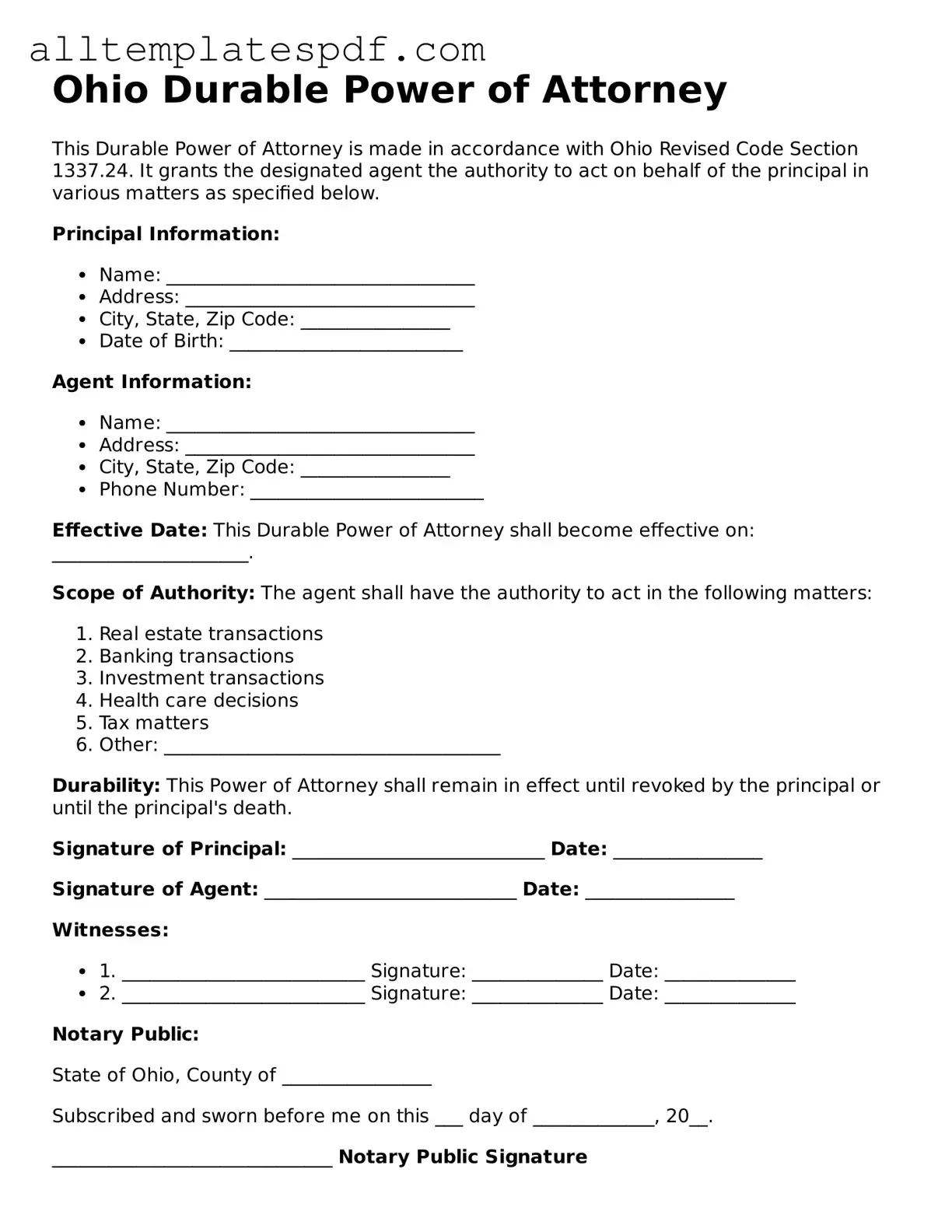Blank Durable Power of Attorney Template for the State of Ohio
The Ohio Durable Power of Attorney form is a legal document that allows an individual to appoint someone else to make financial and legal decisions on their behalf, even if they become incapacitated. This form ensures that your wishes are respected and that someone you trust is in charge of your affairs when you cannot be. To take control of your future, consider filling out the form by clicking the button below.
Open Editor

Blank Durable Power of Attorney Template for the State of Ohio
Open Editor
Fast and easy form completion
Complete Durable Power of Attorney digitally — fast and easy.
Open Editor
or
↓ Durable Power of Attorney PDF Form
